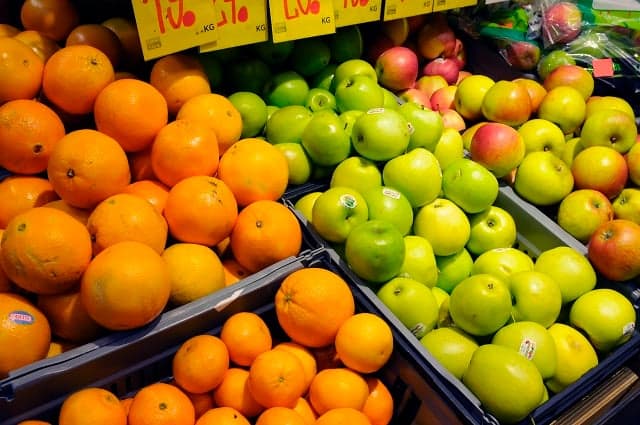Swedish researcher makes bioplastic from fruit waste

Even disposable items can be environmentally friendly, as shown by research at the University of Borås into making bioplastic out of fruit waste.
Researcher Veronika Bátori at the western Swedish university has made bioplastics using waste from apples and oranges, as part of her doctoral thesis.
Bátori has done this using two methods. The first is by turning the waste into a liquid that dries into a thin film, which could be used as food packaging or to create rubbish bags as an alternative to using standard plastic for these purposes.
The second method uses 3D-printing to create products from the waste. According to the researcher, the processes are "simple", and the waste products from the two fruits behave slightly differently and can even be combined.
READ ALSO:
-
Why Sweden's waste imports may not be as eco-friendly as you think
-
Most Swedes now want an environmentally friendly funeral
-
'Sweden still has a problem when it comes to cutting down on food waste'
There are still some problems with the materials, which dissolve in water for example, meaning they can't currently be used to create environmentally-friendly disposable cups or mugs. But the researcher is still hopeful that products using her methods could be available to the public within ten years.
"I would love to find a company that can help me develop the products, but right now there are no plans for a second step," she told the TT newswire.
Research into materials that can replace plastic in disposable packaging has been going on for many years, but Bátori said that the unique aspect of her work was using food waste.
"There are a lot of discussions about food, fuel, food production and cultivated land, and from that perspective I believe the future lies in bio-products made from waste," she said.
Vocabulary
environmentally friendly – miljövänlig
waste (noun) – avfall
disposable/single-use items – engångsartiklar
apple – äpple
orange – apelsin
research (noun) – forskning
We're aiming to help our readers improve their Swedish by translating vocabulary from some of our news stories. Did you find this article useful? Do you have any suggestions? Let us know.
Comments
See Also
Researcher Veronika Bátori at the western Swedish university has made bioplastics using waste from apples and oranges, as part of her doctoral thesis.
Bátori has done this using two methods. The first is by turning the waste into a liquid that dries into a thin film, which could be used as food packaging or to create rubbish bags as an alternative to using standard plastic for these purposes.
The second method uses 3D-printing to create products from the waste. According to the researcher, the processes are "simple", and the waste products from the two fruits behave slightly differently and can even be combined.
READ ALSO:
- Why Sweden's waste imports may not be as eco-friendly as you think
- Most Swedes now want an environmentally friendly funeral
- 'Sweden still has a problem when it comes to cutting down on food waste'
There are still some problems with the materials, which dissolve in water for example, meaning they can't currently be used to create environmentally-friendly disposable cups or mugs. But the researcher is still hopeful that products using her methods could be available to the public within ten years.
"I would love to find a company that can help me develop the products, but right now there are no plans for a second step," she told the TT newswire.
Research into materials that can replace plastic in disposable packaging has been going on for many years, but Bátori said that the unique aspect of her work was using food waste.
"There are a lot of discussions about food, fuel, food production and cultivated land, and from that perspective I believe the future lies in bio-products made from waste," she said.
Vocabulary
environmentally friendly – miljövänlig
waste (noun) – avfall
disposable/single-use items – engångsartiklar
apple – äpple
orange – apelsin
research (noun) – forskning
We're aiming to help our readers improve their Swedish by translating vocabulary from some of our news stories. Did you find this article useful? Do you have any suggestions? Let us know.
Join the conversation in our comments section below. Share your own views and experience and if you have a question or suggestion for our journalists then email us at [email protected].
Please keep comments civil, constructive and on topic – and make sure to read our terms of use before getting involved.
Please log in here to leave a comment.